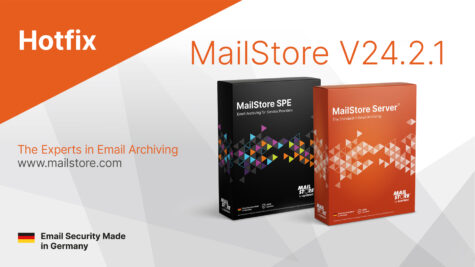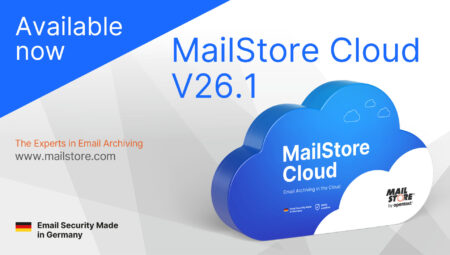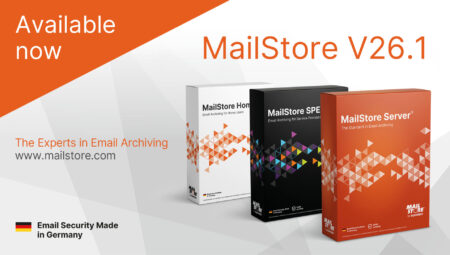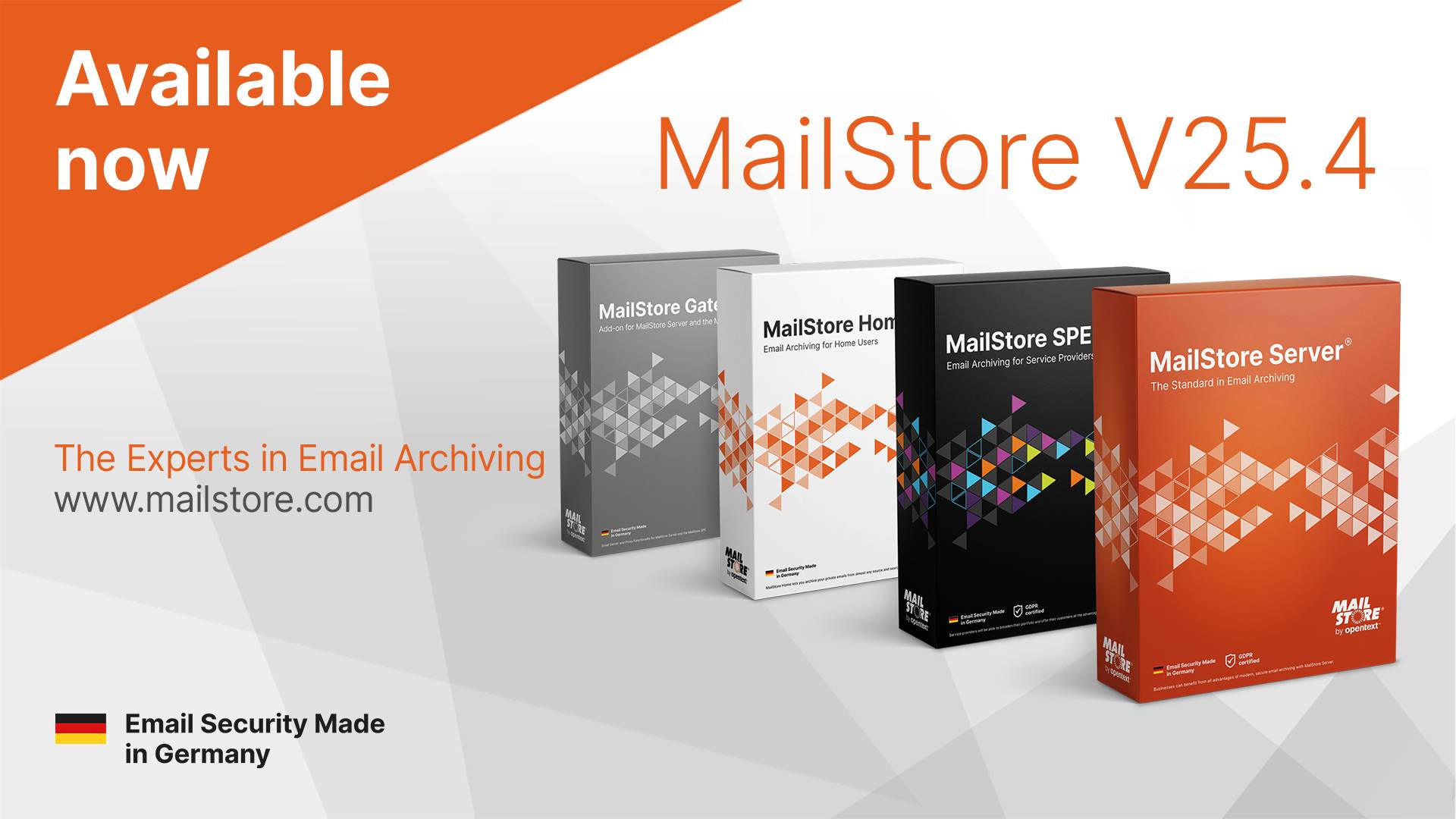
Hotfix Available – Update to MailStore V24.2.1 Now!
Today, we’ve released MailStore V24.2.1, a hotfix for MailStore Server and the MailStore Service Provider Edition that corrects a potential issue in V24.2 regarding recovery records.
Background: With the previously released version 24.2, it was necessary to manually update the archive store databases to Firebird 4. Until the manual update was conducted, no recovery records would be written. However, the correct archiving of emails was still guaranteed provided that the software was used correctly.
What Is the Purpose of Recovery Records?
MailStore stores email metadata in its archive store databases. In addition to the archiving date and the email’s directory, this metadata contain further information that enables users to quickly navigate and search through an archive. The metadata are additionally stored in what are known as recovery records. Recovery records are stored in files in the file system alongside the email content. Only the database is used when metadata are read. If this database is defective, it can be restored from the recovery records.
Hotfix Ensures Complete Recording of Recovery Records
Our hotfix ensures that the recovery records are created as usual and also covers the period between the update to MailStore version 24.2 or 24.2.1 and the manual update of the archive store databases to Firebird 4. This means that databases can easily be restored from the recovery records.
Notes on the Use of MSSQL and PostgreSQL Databases
For archive stores using MSSQL or PostgreSQL databases, the recovery records are fully populated in 24.2. These are not affected by the problem. The hotfix only affects archive stores that use Firebird as the database.
Certification: Meeting Data Privacy Requirements
The existing GDPR certification for our software remain unaffected by the hotfix. You can find all information on the certifications here.
Availability
You can download the new version free of charge from our website.
If your MailStore Server Update & Support Service has expired, please contact us to purchase an upgrade that will allow you to use the latest version of MailStore Server. Read here to find out about other good reasons for having an active Update & Support Service in place.
Interested companies can also download MailStore Server as part of a free, 30-day trial. If you are an MSP and are interested in offering email archiving as a service based on the MailStore SPE, please contact our sales team at [email protected]. Alternatively, you can sign up as an authorized MailStore Partner with us right now for free.
Click Here for the Corresponding Changelogs
- MailStore Server: https://www.mailstore.com/en/products/mailstore-server/changelog/
- MailStore SPE: https://www.mailstore.com/en/products/mailstore-spe/changelog/
More Information
- Archiving Email – MailStore Server Help
- Archiving Emails from Microsoft 365 – Modern Authentication – MailStore Server Help
- Archiving Emails from Microsoft Exchange 2016 – MailStore Server Help
- Archiving Emails from Microsoft Exchange 2019 – MailStore Server Help
- Archiving Emails from External Systems – File Import – MailStore Server Help
- Message Date of an Email – MailStore Server Help
Detailed information on recent versions can be found here:
- MailStore V24.2: Multi-Factor Authentication for Synchronized Users
- MailStore V23.4: Archiving of NDRs and Option to Delete Flagged Emails
- MailStore V23.3: Easy Importing of Archive Mailboxes From Microsoft Exchange Online (Microsoft 365) and Exchange Server, as Well as Improved Retention Policies
- MailStore V23.2: Multi-Factor Authentication for Administrators and Users
- MailStore V23.1: New Retention Policies and MailStore SPE for 2,000 Users
- MailStore V22.4: Multi-Factor Authentication for the MailStore Service Provider Edition and Improved Resource Management
- MailStore V22.3: Support for Outlook 2021, More Security, and a Better User Experience
- MailStore V22.2: Support for Windows 11, Windows Server 2022, and TLS 1.3
- MailStore V22.1.1: Error-Free Archiving of Public Folders in Microsoft 365








